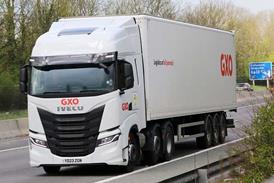It might be the new year but the cycling debate is about to find another gear, proving it remains a clear and present danger and not a historical footnote.
Boris Johnson’s controversial Safer Lorry Charge is due for consultation “in the new year”, although a call this week to the London mayor’s office yielded no joy as to the exact date (let alone what exactly a safer lorry is). Expect plenty of headlines when it does surface.
Meanwhile, London Councils has confirmed that its consultation over plans to bolt on a mandatory safety equipment requirement to all members of the London Lorry Control Scheme will begin this month, with stakeholders RHA and FTA (not exactly big fans of the proposal) due to be consulted directly.
We’ll also get an update on Monday (13 January) from the MET police about how many LGVs were issued FPNs during the recent Operation Safeway. We already know more than 4,000 cyclists received FPNs, and there’s already been some media spin out about road transport but it’ll be interesting to see the official figures.
The Hub even looked into London Assembly member Jenny Jones recent broadside in regards cycling safety in the capital (picked up by the BBC London and London Evening Standard) to find the cycling KSIs quoted were in truth repackaged for the slow Christmas news period, and although troubling not actually new being instead from a data set published in June 2013 that The Hub has already covered.
There remains a long road ahead.
Irrespective, it seemed relevant to cover the results of Commercial Motor’s Trucking Britain survey from December, which I out in tomorrow’s edition of the weekly magazine (9 January).
Asked about their view on cycling safety, more than 200 road transport professionals overwhelmingly supported proper enforcement (including fines of cyclists ignoring the rules of the road (87%); and more training for cyclists in large vehicle blind spots (85%), as the two measures that would make cycling in London and the UK safer for vulnerable road users.
Physical segregation, more night-time delivery flexibility and further training for LGV drivers all polled highly too, although it appears that simply fitting more and more safety equipment to LGVs is not seen as the way forward by the majority (garnering around 25%).













